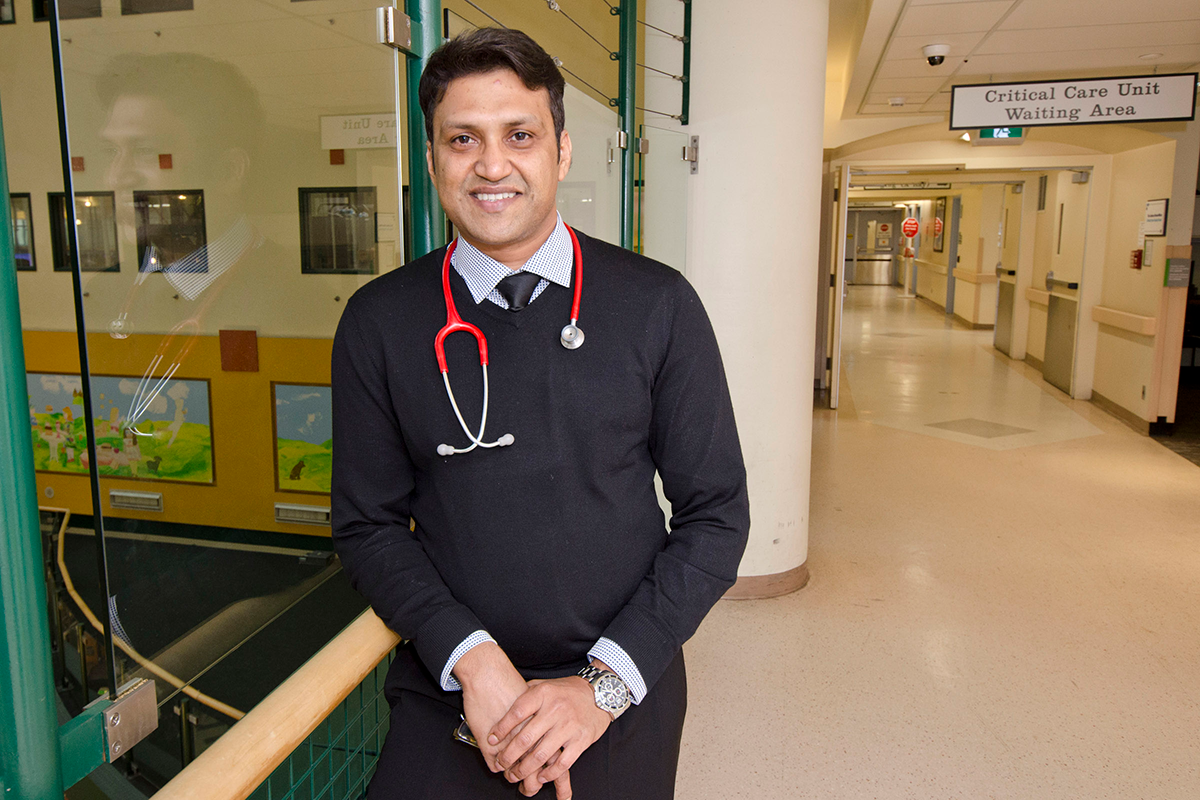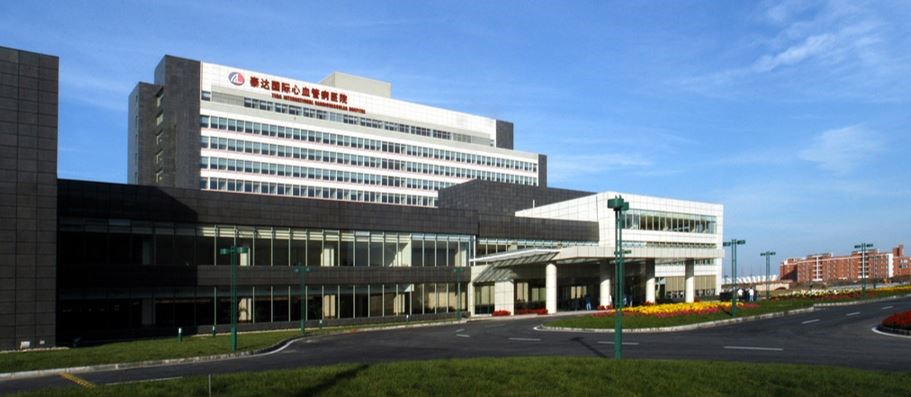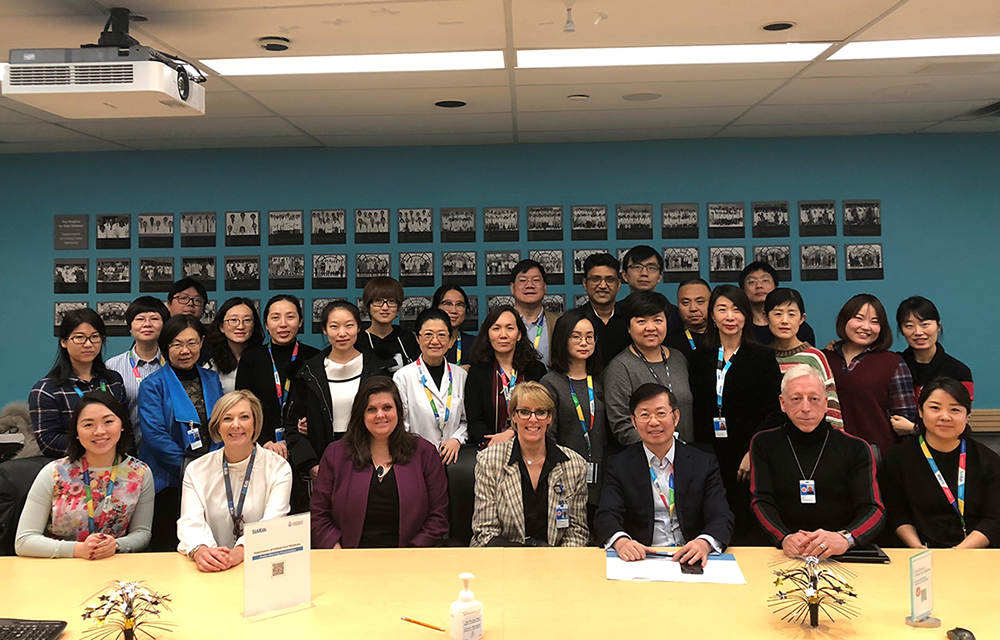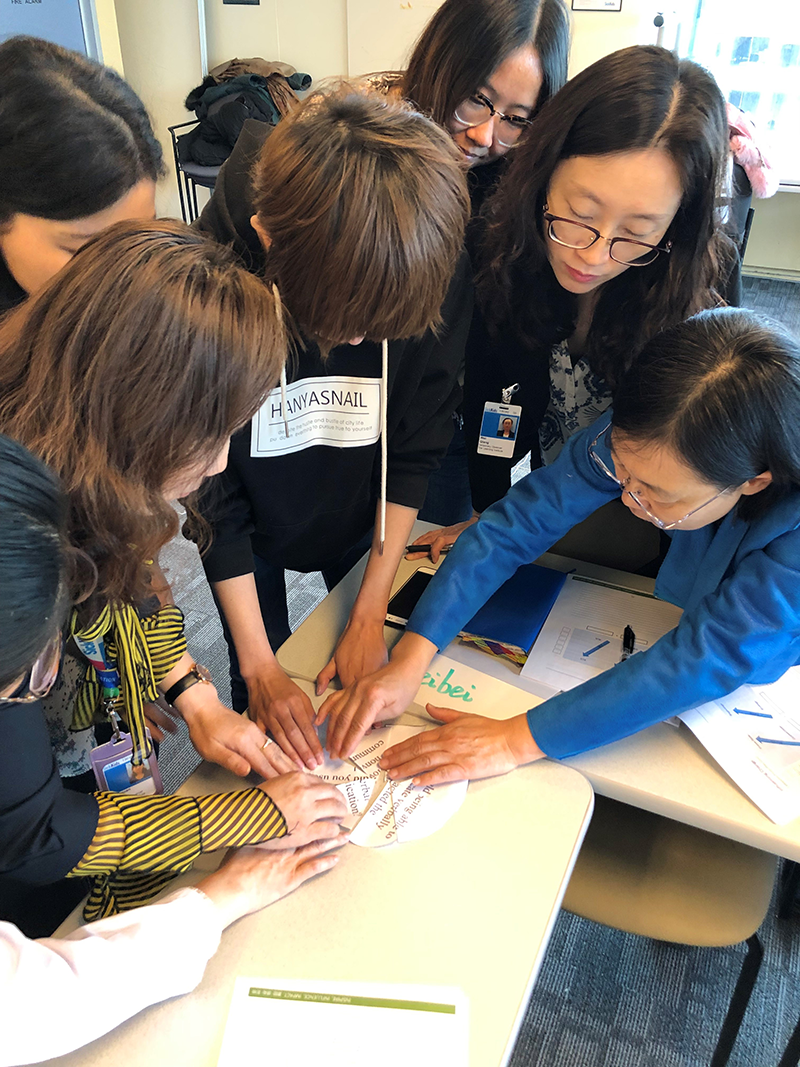Sharing our knowledge and expertise worldwide: Meet Dr. Mohamed Mohideen, Tianjin, China
Summary:
Dr. Mohamed Mohideen is a former fellow in Critical Care at SickKids. Through SickKids' partnership with TEDA International Cardiovascular Hospital (TICH) in Tianjin, China, Mohamed was appointed Director of TICH's intensive care unit, a role he has held since August 2018.
Meet Mohamed Mohideen, a former fellow in critical care at SickKids. Through SickKids' partnership with TEDA International Cardiovascular Hospital (TICH) in Tianjin, China, Mohamed was appointed Director of TICH's intensive care unit, a role he has held since August 2018. Mohamed recently visited SickKids as part of a delegation from TICH and sat down to share his experiences in the partnership, particularly the unique aspect of seeing both sides of the partnership, being a SickKids fellow and then transitioning to a staff member working abroad.

What is your current role at TICH?
As the Director of the Paediatric Critical Care Unit at TICH I am in charge of the entire ICU. That's what I signed up for but I quickly realized the role encompasses a lot more than the actual ICU itself! Part of the project is improving all the facilities at TICH and my role is now more of a hospital-wide role, trying to improve different programs in the hospital. I'm in a position where I can observe and see things that happen in the ICU, the OR, the unit and even in the adult ICU. We're able to do a lot of things hospital-wide so that is really gratifying.

Tell us about your journey, from the time when you were a fellow at SickKids to how you ended up at TICH.
My fellowship in the SickKids Critical Care Unit was for one year. About six months before I was going to finish my fellowship, there was talk about extending it for another year. My mentor, Dr. Steven Schwartz, who is head of the Cardiac Critical Care Unit, asked me if I would like to extend it and I said that I wanted to explore working in another country, perhaps go for a fellowship in Australia. Steve and a lot of the other staff at SickKids provided some really good guidance, saying it's a good experience to go to a hospital like TICH, where they can use your expertise and your training from SickKids to help them improve their infrastructure and build capacity, before you go for further training. I considered this. I went to China for a week and observed the hospital to see how SickKids International works in this setting and I decided before I returned to Toronto that yes, this is the place that I will be working for this year.
What learnings did you take from your fellowship experience at SickKids into your staff role at TICH?
Everything! The big ones are the clinical experience that I gained and working with different teams for the common goal/shared model of providing the best that we can for the child in the Critical Care Unit. Even bigger than that was working with all of these different teams and trying to do the best that you can for the team. This is what forms the foundation of what I do in China. From the experience that I have and from the knowledge that I've gained, we're trying to teach people how to coordinate different teams. We have a lot of different projects going on at TICH right now, which involves many teams, so my experience at SickKids has taught me how to get all of these teams together and working in the best possible way for both the teams and the patients.

What have you learned so far from your second visit here as a staff member versus being a fellow? How was your experience the same? How does it differ?
What is different is that I'm able to observe with a different perspective. For example, as I said earlier, when I see how the teams work together at SickKids I now bring first-hand experience from China of how difficult it is to get these teams working together. That is something that you can't put a price on. We can build all the infrastructure we want, and China's got fantastic infrastructure, but getting this culture, this unity, this cohesiveness of working together for the betterment of the child – that is something I can see in an absolutely different light. Several of my colleagues from China are with me on this visit to SickKids. A lot of the times when I am teaching and doing this, I tell them about my experiences at SickKids, and I think at that time they couldn't feel the enormity of what I was telling them. Now they say "Oh, this is what you were talking about!" and they ask, "How are we going to bring this back to TICH? Is it even possible to bring it back?" It's inspiring.
I assume the SickKids experience doesn't just end for your group when you get on the plane to China. Connections are made, lasting relationships established, ideas continue to be exchanged…
Absolutely! And that's the whole idea – trying to emulate the work that is done at SickKids. It is difficult to emulate like infrastructure and things that have happened at SickKids because this is among the best hospitals in the world, if not the best, so getting TICH to where we are is difficult but just picking up things from the way things work here, the way people work, the way people are so concerned about children, it's truly child and family-centred health care. And these are things that we will take back. It's a change in attitude that we're trying to encourage right now. We know exactly what we're looking to do at TICH. At the start the scale was overwhelming, but now we're working on things that are doable for us, with high rewards. The cultural change, the perspective that SickKids gives, the resources, the infrastructure, the encouragement that they give you and the way they map things out is just phenomenal.


